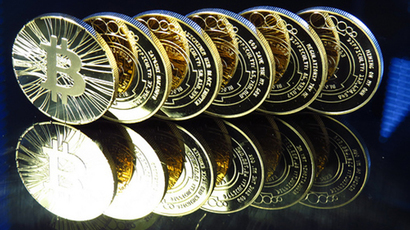Sacramento Kings become first pro sports team to accept bitcoin

The National Basketball Association’s Sacramento Kings announced Thursday that it will become the first professional sports franchise to accept the virtual currency bitcoin.
The Kings will allow fans to buy merchandise at its team store and pay for tickets with the emerging crypto-currency.
"When I sold the NBA on keeping the team in Sacramento, my pitch included using the sports franchise as a social network to push the technology envelope," Kings owner Vivek Ranadive told ESPN.com. "This is an example of that."
Though bitcoin has a market value of around US$11 billion, and some businesses in places like New York City and Vancouver accept the digital currency, retailers have been slow to join the party. In early January, Overstock.com became the first major retailer to accept Bitcoin, racking up $130,000 worth of transactions within the first 24 hours.
The Kings will use Bitcoin processor Bitpay to accept the currency, paying back the team in cash later. Using Bitpay has the potential to net more money on transactions for the team since Bitpay charges a flat fee rather than a percentage of the sale, like credit and debit cards.
Ranadive also told ESPN the team was experimenting with Google Glass for its potential to enhance fan experience and even possibly allow the team’s coaches to better manage during games.
The decentralized, crypto-currency is free from any government or central bank control. Currency is sold and bought at online exchanges, and those transactions can be virtually anonymous.
Since its inception in 2008 by a man using the alias ‘Satoshi Nakmoto,’ bitcoin has gone mainstream. According to Bitcoincharts, which follows the anonymous currency, there are nearly 12 million bitcoins in circulation.
While the relatively new crypto-currency does have many legitimate and rapidly-expanding uses, bitcoin is best-known for its popularity with criminal and shadowy internet figures because of its difficulty to track. For example, bitcoin was required for all transactions on the Silk Road, where customers could find illegal drugs, child pornography, weapons or a contract killer, among other listings.
The FBI is believed to own the largest collection of bitcoins in the world. When the FBI shut down Silk Road in October, it assumed the underground marketer’s bitcoin wallets, worth as much as $120 million, though the value of a bitcoin fluctuates often. On Thursday, one bitcoin was worth approximately $850.
The consensus within the US government for now is that buying and selling with bitcoin isn’t necessarily breaking any laws. The Department of Justice said bitcoins can be a “legal means of exchange” during a Senate committee hearing in November, and Federal Reserve Chairman Ben Bernanke said the central bank “does not necessarily have authority to directly supervise or regulate these innovations or the entities that provide them to the market.”














